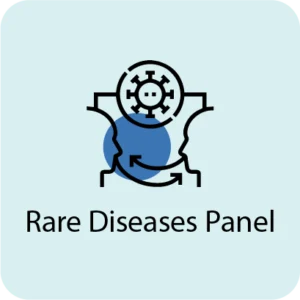Allergies
Allergies are an increasingly prevalent health concern. It is seen affecting millions of individuals worldwide. Some of these immune systems shall all respond while occurring when the body reacts adversely to substances that are usually harmless. Such substances are known as allergens. Right from pollen and dust mites to some specific foods and medications like allergens can trigger a wide range of symptoms. They shall all vary from mild discomfort to severe, life-threatening reactions.
Causes and Mechanisms
In some of the allergic reactions occurring the immune system mistakenly identifies harmless substances as threats. They shall mount defensive responses. The body shall also produce those Immunoglobulin E (IgE) antibodies specific to the allergen. This shall trigger the release of inflammatory chemicals like histamine. Such a cascade of immune activity shall lead to the characteristic symptoms of allergies.
Types of Allergies
Respiratory Allergies:
Some of the common allergens like pollen, dust mites, mold spores, and pet dander. These symptoms might include sneezing, itchy or watery eyes, congestion, and wheezing.
- Conditions: Allergic rhinitis (hay fever), allergic asthma
- Symptoms: Sneezing, runny or stuffy nose, itchy or watery eyes, wheezing, coughing, shortness of breath
Food Allergies:
Some of the common food allergens include tree nuts, milk, peanuts, eggs, fish, wheat, soy, and shellfish. The symptoms might include hives, abdominal pain, swelling, nausea, vomiting, diarrhea, or, in severe cases, anaphylaxis.
- Conditions: Peanut allergy, tree nut allergy, shellfish allergy, wheat allergy, dairy allergy
- Symptoms: Hives, itching, swelling, or tingling in the mouth, abdominal ache, nausea, diarrhea, vomiting, or anaphylaxis
Skin Allergies:
Allergens including metals, medications, latex, or insect stings can cause skin reactions such as hives, eczema, dermatitis, or swelling.
- Conditions: Atopic dermatitis (eczema), contact dermatitis, urticaria (hives), angioedema
- Symptoms: Redness, swelling, itching, rash, blisters, hives, skin dryness or flaking
Cardiovascular Relationship to Allergies
While allergies primarily affect the respiratory and skin systems, some of the researchers have all suggested a potential link that lies between allergies and cardiovascular health.
Allergic reactions can trigger inflammation, potentially impacting blood vessels and increasing the risk of cardiovascular events.
- Symptoms: Enhanced heart rate, palpitations, chest pain, shortness of breath, low blood pressure, fainting (in some of the severe cases)
Risk Factors
Individuals with severe allergies, just like those prone to anaphylaxis, might face enhanced cardiovascular risk during those allergic episodes. Factors like stress, physical exertion, and exposure to those allergens can exacerbate cardiovascular symptoms in these susceptible individuals.
- Conditions: Anaphylaxis, is a severe allergic reactions kind of thing
- Symptoms: Stress, exposure to allergens, physical exertion, and some of the pre-existing cardiovascular conditions
Management
Managing allergies which shall effectively help in lowering those cardiovascular risks is well associated with allergic reactions.
Some shall include prompt treatment of allergic symptoms, which shall adhere to prescribed medications (like cardiovascular medications), and other lifestyle modifications that shall minimize exposure to allergens and lower overall inflammation.
- Conditions: Allergy management strategies to lower those cardiovascular risks
- Approaches: Some of the prompt treatment of allergic symptoms, concerning prescribed medications, lifestyle modifications (like stress management or allergen avoidance)
Genetic Diseases
Genetic Basis of Allergies
While some of the allergies are influenced by both genetic and environmental factors, their predispositions might enhance susceptibility to allergic conditions. This family history of allergies and specific genetic variations can further contribute to an individual’s likelihood of developing allergies.
- Factors: Family history of allergies, those specific genetic variations that affect immune function
Common Genetic Factors
Various genes are well associated with immune system regulation, like those encoding cytokines, immunoglobulins, and human leukocyte antigens (HLAs). This shall play a role in allergic responses. Variations in some of the genes can further impact immune function and the body’s ability to recognize and tolerate those allergens.
- Genes: Cytokines, human leukocyte antigens (HLAs), immunoglobulins
- Impact: Influence immune system regulation and all those responses to allergens
Genetic Testing
Some might provide proper insight into an individual’s predisposition to allergies. This shall all help in identifying potential risk factors and one shall also inform personalized prevention and treatment strategies.
Genetic testing is not typically used as a standalone diagnostic tool for those allergies and it is well combined with other diagnostic methods.
- Methods: Testing for some specific genetic variations that are well associated with allergic conditions
Immune System
Immune Response to Allergens
Some of the allergic reactions shall involve an abnormal immune response to otherwise harmless substances, like allergens. While you are about allergens, the immune system produces antibodies (IgE). It shall also trigger the release of inflammatory chemicals. Such a condition can lead to allergic symptoms.
- Conditions: Abnormal immune responses are all harmless substances (allergens)
- Process: Production of these IgE antibodies triggers the release of inflammatory chemicals
Immunoglobulin E (IgE)-Mediated Response
In IgE-mediated allergies, the immune system shall produce IgE antibodies. These are specific to certain allergens. Things that are right upon re-exposure to these allergens, such IgE antibodies bind to mast cells and basophils. This shall trigger the release of histamine and other mediators that cause allergic symptoms.
- Conditions: Allergies involving those IgE antibodies
- Process: Binding of IgE antibodies to mast cells and basophils, which shall release histamine and other mediators
Immune Modulation
Strategies for modulating the immune system which is a good response to allergens like allergen immunotherapy (desensitization). Such things shall involve gradual exposure to the body for enhancing dosages of allergens to induce tolerance. Some of the Immunomodulatory medications, like biologics and immunosuppressants, might be well used in managing severe allergies and autoimmune conditions.
- Approaches: Allergen immunotherapy (desensitization), immunomodulatory medications
- Purpose: Modify some of the immune response to allergens, lowering allergic inflammation
Metabolic
Metabolic Effects of Allergies
Allergic reactions to this can have metabolic implications, which shall particularly be about individuals with severe or chronic allergies. The body’s response to allergens can further trigger metabolic changes. This shall include enhanced energy expenditure, alterations in glucose metabolism, and shifts in lipid profiles.
- Conditions Observed: Enhanced energy expenditure, some of the alterations in glucose metabolism, while shifts in lipid profiles
- Symptoms: Alterations in energy levels, while fluctuations in blood sugar levels, including alterations in cholesterol levels
Impact on Metabolic Disorders
In some of the individuals predisposed to metabolic disorders like diabetes, obesity, or dyslipidemia, allergic inflammation might exacerbate underlying metabolic imbalances. Other Chronic inflammation is known to be well associated with allergies which can all contribute to dyslipidemia, insulin resistance, and metabolic syndrome.
- Conditions: Exacerbation of obesity, dyslipidemia, diabetes
- Symptoms: Enhanced insulin resistance, dysregulated blood sugar levels, abnormal lipid levels
Management Strategies
Managing some of the allergies effectively might help in mitigating metabolic risks that are well associated with those allergic inflammation. Lifestyle modifications like a balanced diet, performing regular exercise, stress management, and adequate amount of sleep. This all can support metabolic health. It shall also reduce the impact of allergic inflammation on metabolic function.
- Conditions: Lifestyle modifications for supporting metabolic health
- Approaches: Following a balanced diet, regular exercise, stress management, and adequate sleep
Metabolic Disorders
Interplay with Allergies
Some metabolic disorders, like obesity and metabolic syndrome, influence the development and severity of allergic conditions. Conversely, some of the allergic inflammation can exacerbate metabolic dysfunction. This shall create a complex interplay right between those allergies and metabolic health.
Shared Mechanisms
Both these allergies and metabolic disorders involve dysregulated immune responses and some chronic inflammation. Shared mechanisms, like adipose tissue inflammation, oxidative stress, and other alterations in gut microbiota composition. It shall further contribute to the bidirectional relationship that lies between allergies and metabolic disorders.
Comprehensive Management
Addressing both the allergic and metabolic components is essential for comprehensive management. A multidisciplinary approach which shall further addresses diet, weight management, physical activity, and allergy solutions can all help in improving outcomes and lower the burden of both allergic and some metabolic conditions.
Need for Nutrients
Nutritional Considerations in Allergy Management
Nutrition plays a crucial role in further managing those allergies and supporting overall health. Nutrient-rich foods shall all help in providing some of the essential vitamins, antioxidants, minerals, and phytonutrients which shall further support those immune functions, lower the inflammation, and promote tissue repair.
- Conditions: Importance of nutrition in managing allergies
- Symptoms: Enhanced immune function, lowered inflammation, well-trained tissue repair
Key Nutrients
Some of the nutrients might have specific benefits for individuals with allergies. Omega-3 fatty acids, quercetin, vitamin D, and bromelain might have anti-inflammatory properties and they might also help to alleviate allergic symptoms. Probiotics and prebiotic fibers support gut health and immune regulation.
- Conditions: Specific nutrients beneficial for allergies
- Symptoms: Alleviation of allergic symptoms, improved immune regulation, enhanced gut health
Balanced Diet Approach
Promoting a balanced diet that includes a variety of nutrient-dense foods is essential for individuals with allergies. Emphasizing fruits, vegetables, whole grains, lean proteins, healthy fats, and adequate hydration supports overall health and may help mitigate allergic inflammation.
- Conditions: Promoting overall health and mitigating allergic inflammation
- Symptoms: Reduced allergic reactions, improved overall well-being
Psychiatric
Psychological Impact of Allergies
Allergies can have a significant psychological impact, affecting mood, quality of life, and mental well-being. Allergic symptoms, chronic inflammation, and medication side effects can contribute to anxiety, depression, and stress in individuals with allergies.
- Conditions: Impact of allergies on mental well-being
- Symptoms: Anxiety, depression, stress
Bidirectional Relationship
The relationship between allergies and psychiatric conditions is bidirectional, with allergies potentially exacerbating psychiatric symptoms and vice versa.
Chronic stress and mental health disorders can also dysregulate the immune system, potentially worsening allergic inflammation.
- Conditions: Influence of psychiatric conditions on allergies and vice versa
- Symptoms: Exacerbation of allergic symptoms, worsening of psychiatric symptoms
Holistic Management
Addressing the psychological aspects of allergies is integral to holistic management. Psychotherapy, stress management techniques, mindfulness practices, and support groups can help individuals cope with the emotional impact of allergies and improve overall quality of life.
- Conditions: Importance of addressing psychological aspects of allergies
- Approaches: Psychotherapy, stress management techniques, support groups
Reactions to Treatments
Treatment Challenges
While some allergy treatments like medications and immunotherapy can be effective, they may also carry the risk of adverse reactions or side effects. Allergic reactions to treatments can range from mild to severe, requiring prompt medical attention.
- Conditions: Potential adverse reactions to allergy treatments
- Symptoms: Skin rash, nausea, anaphylaxis
Individualized Approach
Tailoring allergy treatment to individual needs and preferences is essential for minimizing adverse reactions. Comprehensive allergy testing, careful medication selection, and close monitoring can help identify and mitigate potential treatment-related risks.
- Conditions: Importance of tailoring treatment to individual needs
- Approaches: Comprehensive allergy testing, careful medication selection, close monitoring
Patient Education
Patient education plays a crucial role in preventing and managing allergic reactions to treatments. Providing clear instructions on medication use, recognizing warning signs of adverse reactions, and knowing when to seek medical help empower patients to safely navigate allergy treatment.
- Conditions: Empowering patients to safely navigate allergy treatment
- Approaches: Clear instructions on medication use, recognition of warning signs, knowing when to seek medical help
Respiratory System
Respiratory Allergies
Some of the respiratory allergies, like allergic rhinitis (hay fever) and asthma, are well among the most common allergic conditions. These allergens like pollen, dust mites, mold spores, and pet dander trigger allergic reactions in the respiratory system. It shall all lead to symptoms like sneezing, wheezing, congestion, and shortness of breath.
- Conditions: Allergic rhinitis, and allergic asthma
- Symptoms: Sneezing, congestion, wheezing, shortness of breath
Management Strategies
Managing some of the respiratory allergies involves other allergen avoidance, medication therapy (like antihistamines, bronchodilators, nasal corticosteroids), and allergen immunotherapy (like allergy shots or sublingual tablets). Some of the lifestyle modifications, like using air purifiers, practicing nasal irrigation, and minimizing exposure to outdoor allergens. This is much during those peak seasons, which can also help alleviate symptoms.
- Conditions Observed: Strategies for managing some respiratory allergies
- Approaches: Allergen avoidance, medication therapy, lifestyle modifications
Skin
Allergic Skin Conditions
Allergic reactions manifest on the skin in various forms, including hives, eczema, contact dermatitis, and angioedema.
These allergens like certain foods, insect stings, medications, or environmental triggers lead to skin irritation, redness, itching, swelling, or rash.
- Conditions Observed: Hives, contact dermatitis, eczema, and angioedema
- Symptoms: Skin irritation, redness, itching, swelling, and rashes
Treatment Approaches
Treatment for allergic skin conditions might all include some of the topical corticosteroids, moisturizers, antihistamines, and avoidance of known triggers. They shall all identify and eliminate allergens through patch testing or allergy testing which can all help in preventing recurrent flare-ups and managing symptoms effectively.
- Conditions: Approaches to managing allergic skin conditions
- Approaches: Topical corticosteroids, antihistamines, allergen avoidance
Allergies: Importance of Early Diagnosis
Early diagnosis of allergies is paramount for effective management and prevention of potential complications. Allergic reactions can range from mild discomfort to life-threatening emergencies, making timely identification crucial. Symptoms include sneezing, itching, hives, swelling, difficulty breathing, and anaphylaxis in severe cases.
By diagnosing allergies early, you can take proactive measures to avoid triggers, seek appropriate treatment, and improve quality of life. Lifecode emphasizes the significance of early intervention through regular screenings, symptom monitoring, and education about allergy management strategies.
How Genetic Testing Helps to Identify All Types of Allergies?
Genetic testing plays a pivotal role in identifying various types of allergies by analyzing your genetic makeup and predispositions. Unlike traditional allergy testing methods, which focuses on specific allergens, genetic testing offers a comprehensive assessment of your susceptibility to different allergens and their severity.
Through genetic testing, Lifecode Healthcare can identify genetic markers associated with allergies, enabling personalized treatment plans tailored to each patient’s unique genetic profile. This precision medicine approach enhances diagnostic accuracy, facilitates targeted therapy, and minimizes adverse reactions.
Lifecode Approach to Allergies
At Lifecode Healthcare, we adopt a holistic approach to allergies encompassing genetic analysis, lifestyle modifications, and personalized interventions. Our goal is to address the root causes of allergies and empower individuals to achieve long-term relief and improved well-being.
As part of our comprehensive allergy management program, Lifecode Healthcare offers:
- Genetic Profiling: Through advanced genetic testing, we identify genetic predispositions to allergies and develop personalized treatment strategies.
- Allergen Avoidance Strategies: We provide guidance on minimizing exposure to allergens in the environment, diet, and lifestyle to reduce the frequency and severity of allergic reactions.
- Immunotherapy: Lifecode Healthcare offers innovative immunotherapy options, including sublingual immunotherapy (SLIT) and allergy shots, to desensitize the immune system and alleviate allergy symptoms effectively.
- Nutritional Counseling: Our team of experts offers tailored nutritional advice to support immune health and mitigate allergic reactions through dietary modifications and supplementation.
By combining cutting-edge technology with personalized care, Lifecode Healthcare strives to empower individuals to take control of their allergies and lead healthier, more fulfilling lives.
Conclusion:
Allergies represent a significant health challenge, but with early diagnosis, genetic testing, and the Lifecode approach, Lifecode Healthcare offers a path towards effective management and relief. Our commitment to personalized care and innovation ensures that individuals receive the support they need to overcome allergies and thrive.
| Categories | Conditions Observed |
|---|---|
| Allergies | Allergic Asthma |
| Allergic Rhinitis | |
| Allergies in General | |
| Allergy to Hydrolyzed Wheat Protein | |
| Allergy to Nuts | |
| Allergy to Pets | |
| Allergy to Shrimp | |
| Allergy to mites | |
| Allergy to pollen | |
| Aspirin Exacerbated Respiratory Disease (AERD) | |
| Asthma | |
| Atopic Dermatitis | |
| Cockroach allergy | |
| Cold-induced hives | |
| Contact dermatitis | |
| Dermographism | |
| Eczema | |
| Egg White Allergy | |
| Grass allergy | |
| Histamine Intolerance | |
| IgE | |
| Mast Cell Activation Syndrome (MCAS) | |
| Milk Allergy | |
| Peach Allergy | |
| Peanut Allergy | |
| Reaction to Paraben | |
| Reaction to Phthalates | |
| Reaction to Triclosan | |
| Sensitivity to secondhand smoke | |
| Cardiovascular | Sensitivity to Vehicle Pollution |
| Genetic diseases | Congenital Ichthyosis |
| Immune system | Allergy to Food Colors |
| Food Allergy | |
| Psoriasis | |
| Metabolic | Celiac disease |
| Gluten Intolerance | |
| Lactose intolerance | |
| Sensitivity to Caffeine | |
| Metabolic disorders | Fructosemia |
| Need for Nutrients | Quercetin |
| Psychiatric | Misophony |
| Motion sickness | |
| Reactions to Treatments | Glucocorticoid Resistance |
| Glucocorticoid Therapy | |
| Respiratory system | Aspergillosis |
| Rhinosinusitis | |
| Skin | Alcohol Erythema Reaction |
| Erythema | |
| Histamine | |
| Ichthyosis | |
| Inflammatory Skin Response | |
| Rosacea |
What is the Allergies Genetic Panel?
The Allergies Genetic Panel is a specialized genetic test designed to analyze an individual’s DNA for genetic variations associated with allergic reactions. By examining specific genetic markers related to immune system function and allergic responses, this panel aims to provide insights into an individual’s genetic predisposition to various types of allergies, such as food allergies, environmental allergies, and allergic asthma.
How does the Allergies Genetic Panel work?
The Allergies Genetic Panel works by analyzing DNA samples to identify variations in genes known to influence allergic responses. These variations can include single nucleotide polymorphisms (SNPs) or other genetic mutations that have been linked to allergic conditions in scientific research. By examining these genetic markers, the panel can provide personalized information about an individual’s risk factors for developing allergies and allergic diseases.
Who should consider undergoing the Allergies Genetic Panel?
The Allergies Genetic Panel may be beneficial for individuals with a personal or family history of allergies or allergic diseases, as well as those who experience recurrent allergic symptoms or have difficulty managing their allergies effectively. Additionally, individuals who are interested in understanding their genetic risk factors for allergies and taking proactive steps to prevent allergic reactions may also consider undergoing genetic testing.
Can the Allergies Genetic Panel be used to diagnose specific allergies?
Allergy diagnosis typically involves a combination of medical history, physical examination, allergy testing (such as skin prick tests or blood tests), and sometimes elimination diets or oral food challenges. However, the genetic information obtained from the panel results can complement traditional allergy diagnostic methods by offering additional context about an individual’s genetic susceptibility to allergic conditions.
Can the Allergies Genetic Panel be used for predictive testing in individuals without current allergy symptoms?
The Allergies Genetic Panel can provide information about an individual’s genetic predisposition to allergies, regardless of whether they currently experience allergy symptoms. Predictive genetic testing may be particularly relevant for individuals with a family history of allergies or those who wish to proactively assess their allergy risk.
No reviews found for this product.










